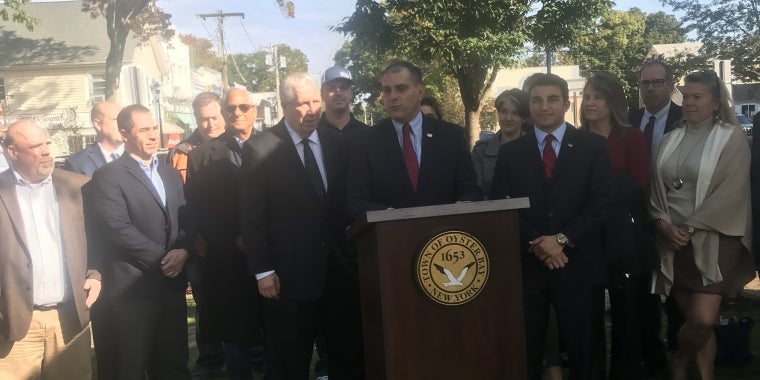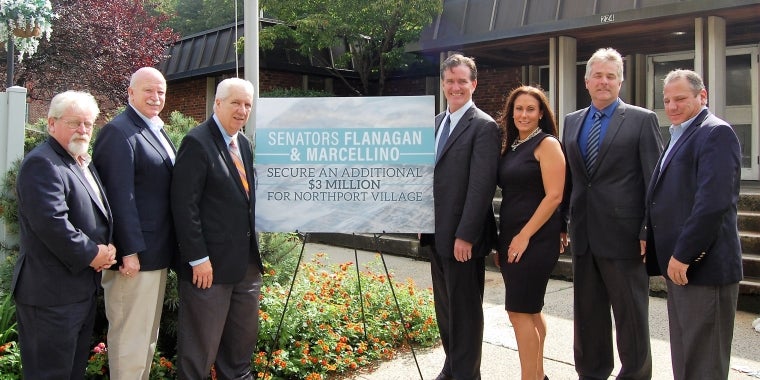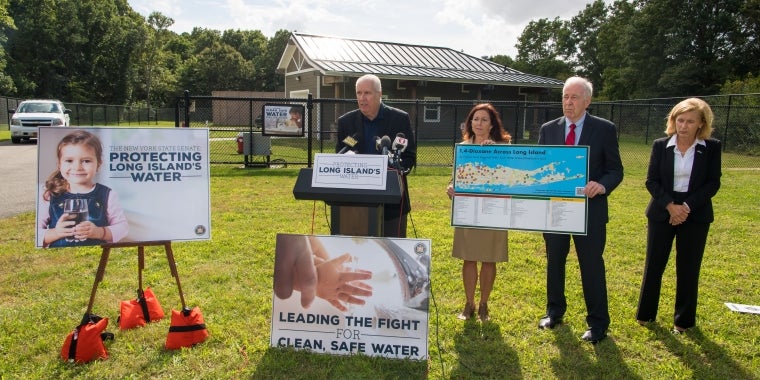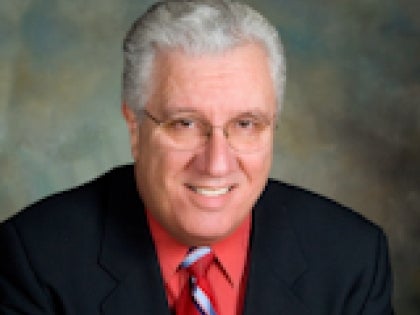
Senate And Assembly Question Broadwater On Proposal
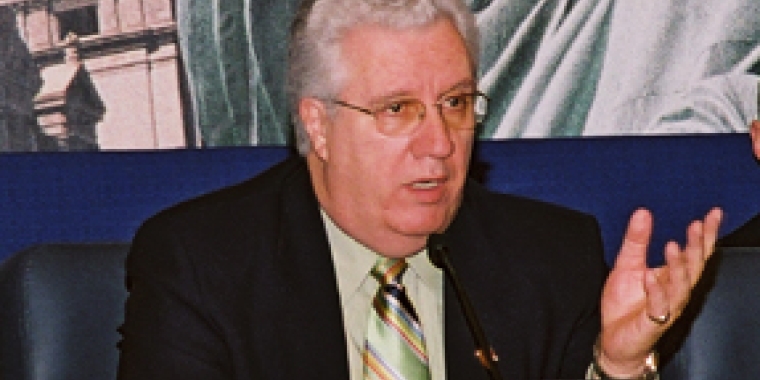
State Senator Carl L. Marcellino, Chairman of the Senate Environmental Conservation Committee, Senator James Wright, Chairman of the Senate Energy and Telecommunications Committee, Assemblyman Thomas DiNapoli, Chairman of the Assembly Environmental Committee, and Assemblyman Paul Tonko, Chairman of the Assembly Energy Committee, today held a public hearing to examine the issues associated with the Broadwater Energy proposal.
Broadwater Energy has proposed building a 1,200 foot long by 180 foot wide floating natural gas terminal which would receive and process shiploads of liquefied natural gas. The terminal would be moored in New York waters and be connected to the underwater portion of the Iroquois natural gas pipeline.
"Only by balancing the needs of our residents, our ecosystems, and business can we face our future needs in a responsible and equitable manner. This hearing is an important phase in discussing how to meet the energy needs of New Yorkers while building on the environmental strides we have made over the last decade," said Senator Carl L. Marcellino (R, Syosset), Chairman of the Senate Environmental Conservation Committee.
"As our natural gas demands continue to increase, it is important that New York examine alternative approaches to bringing the supply directly to consumers. Broadwater Energy has undertaken an ambitious project to bring significant supply of liquefied natural gas to Long Island and New York City. The testimony lawmakers will hear today will provide us with an opportunity to learn and discuss the project’s impact on the state’s energy needs and environmental concerns," said Senator Jim Wright (R,C,I-Watertown), Chairman of the Senate Energy and Telecommunications Committee.
"A project as significant as the Broadwater proposal raises many complex policy issues, and a hearing provides a good opportunity for public consideration," stated Assemblyman Thomas P. DiNapoli (D-Great Neck).
"This legislative hearing will provide a forum for advocates, opponents and experts to provide important testimony with regard to the proposed Broadwater project," said Paul Tonko (D-Amsterdam). "Recently, New York State has struggled to site critical energy infrastructure, such as natural gas pipelines and electric generating plants. With that in mind, it is essential that we weigh both the benefits and costs of this project, while examining the proposed project’s potential role in our State’s energy planning future."
Broadwater project gets stiff review in Albany
BY MICHAEL ROTHFELD
ALBANY BUREU
February 15, 2005, 4:27 PM EST
ALBANY -- Moments after an energy company executive finished listing all the good reasons to build a floating natural gas terminal off the Long Island coast, State Sen. Carl Marcellino pulled the microphone close and asked the blunt question.
"Are we building a bomb in the middle of Long Island Sound?" asked Marcellino (R-Syosset).
"Absolutely not," responded John Hritcko Jr. of Broadwater Energy.
There is currently no facility in the world like the proposed $700 million terminal to import liquefied natural gas that Broadwater wants to build nine miles off the north shore of eastern Long Island.
The plan was the subject today of a joint hearing of the Assembly and Senate environmental control and energy committees.
Federal and state officials and energy industry representatives told often skeptical lawmakers about the need for such a facility to satisfy the rapidly increasing demand for natural gas and keep prices down.
Civic groups criticized the impact on the Sound's ecosystem of the plan, which would require construction of an underwater pipeline. For security reasons, a one-square mile portion of the Sound would be inaccessible to public vessels, with gas tankers arriving every two or three days, according to testimony today.
"I think it would be among the region's top terrorist targets," said Kyle Rabin, executive director of Friends of the Bay, an Oyster Bay environmental group.
But consultants for Broadwater said that in the "worst case" scenario, a spill of the gas and a fire would not extend beyond two and a quarter miles of the facility, far from shore. And they said terrorists would not want to hit the facility anyway.
"It does not give them what they call 'a spectacular event,'" said Richard Sheirer, a consultant with Giuliani Partners in Manhattan.
Copyright © 2005,
Newsday, Inc.